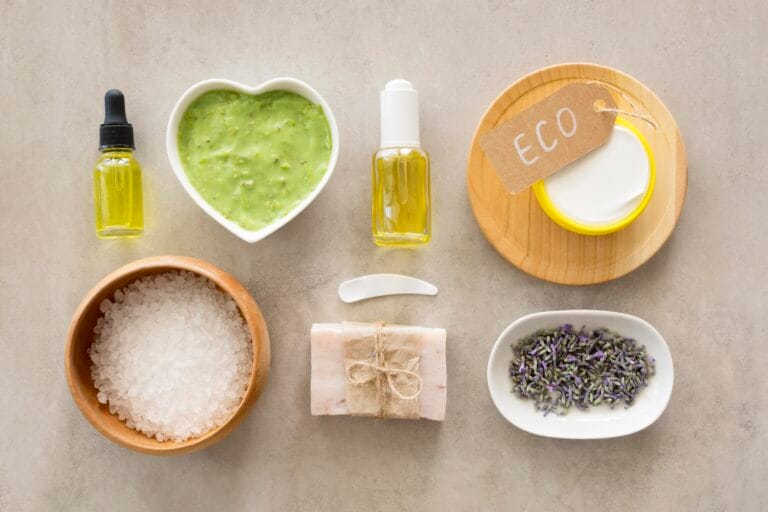
Getting to Know the Types of Oils in Skincare: Origins, Benefits, and Differences

The skin is the largest organ of the human body and serves as the primary protector against the external environment. The skin’s dense and selective structure plays an important role in protecting the body from exposure to microorganisms, ultraviolet rays, allergens, and irritants. Skin health is a key aspect that must be maintained, one of which is through topical treatments using natural ingredients such as vegetable oils.
- Benefits of Vegetable Oils for Healthy Skin
- Extraction Process and Chemical Components of Essential Oils
- Types of Essential Oils and Their Functions for the Skin
- Safe Use of Vegetable Oils for Skin Care
Benefits of Vegetable Oils for Healthy Skin
Vegetable oils have long been used topically for both cosmetic and medical purposes due to their various physiological benefits. One of their main advantages is their ability to form an occlusive layer on the skin surface, which helps maintain skin moisture and reduce transepidermal water loss (TEWL). Several types of oils are commonly used, such as almond oil, jojoba oil, coconut oil, and avocado oil. In addition to retaining skin moisture, some phenolic compounds and tocopherols possess antioxidant activity that can protect the skin from free radicals.
Extraction Process and Chemical Components of Essential Oils
Vegetable oils are classified into two main types: essential (volatile) oils and fixed oils. This article specifically discusses fixed oils, which are types of oils that do not evaporate at room temperature. Among the various extraction methods, vegetable oils obtained through cold-pressing have higher nutritional value compared to refined oils, as they do not involve heat or chemicals that could alter their composition and therapeutic effects. The main components in fixed oils include triglycerides, free fatty acids (FFAs), tocopherols, sterols, stanols, phospholipids, waxes, squalene, and phenolic compounds. Each of these compounds contributes differently to skin physiology, including barrier function, inflammation, antioxidant responses, and cell proliferation.
Types of Essential Oils and Their Functions for the Skin
Types of fixed oils used in skincare products include almond oil, which contains oleic acid, linoleic acid, and vitamin E that function to moisturize and soothe irritated skin. Argan oil has a similar composition with the addition of sterols, acting as an antioxidant that helps prevent early signs of aging and improves skin elasticity. Then there is jojoba oil, which has an ester structure similar to the skin’s natural oils.
It functions as a sebum production balancer and is suitable for acne-prone skin. Acne scars, fine lines, and wound healing can be treated with tamanu oil. Its content of calophyllolide acid, antioxidants, and unsaturated fatty acids has antibacterial properties that support faster wound healing.
Skin response is influenced by the structure and amount of triglycerides, such as straight-chain saturated fatty acids and unsaturated fatty acids. These two types of fatty acids affect the viscosity, absorption, and occlusive properties of the oil. Saturated fatty acids tend to provide a protective effect by forming an occlusive layer on the skin surface, while unsaturated fatty acids are more easily absorbed and play a role in maintaining skin elasticity and moisture. Therefore, selecting the right type of fixed oil is essential to match specific skin needs, such as dry, sensitive, or oily skin.
Safe Use of Vegetable Oils for Skin Care
The use of vegetable oils in skincare is considered healthier because they are derived from natural ingredients that resemble the body’s own lipid compounds, making them more easily recognized and accepted by the skin. Nevertheless, their effectiveness and safety still depend on skin type and individual conditions. Hence, usage should be adjusted wisely and not in excess to avoid the risk of irritation, clogged pores, or skin imbalance.
Reactions such as heat, redness, itching, and irritation should be consulted and treated by a dermatologist. Vegetable oils used in skincare products must be guaranteed for quality and safety before being marketed. Laboratory testing helps ensure that the oil's content and composition meet applicable safety standards. With proper testing, you can maintain consumer trust while enhancing the value of your product.
Have your vegetable oil tested at a trusted laboratory with a team of experts with over 25 years of experience. Each test is comprehensive and adheres to BPOM standards to ensure quality and safety. Ensure your product meets the highest quality standards before being marketed to consumers.
Author: Delfia
Editor: Sabilla Reza
Reference:
Lin, T. K., Zhong, L., & Santiago, J. L. (2017). Anti-Inflammatory and Skin Barrier Repair Effects of Topical Application of Some Plant Oils. International journal of molecular sciences, 19(1), 70. https://doi.org/10.3390/ijms19010070



